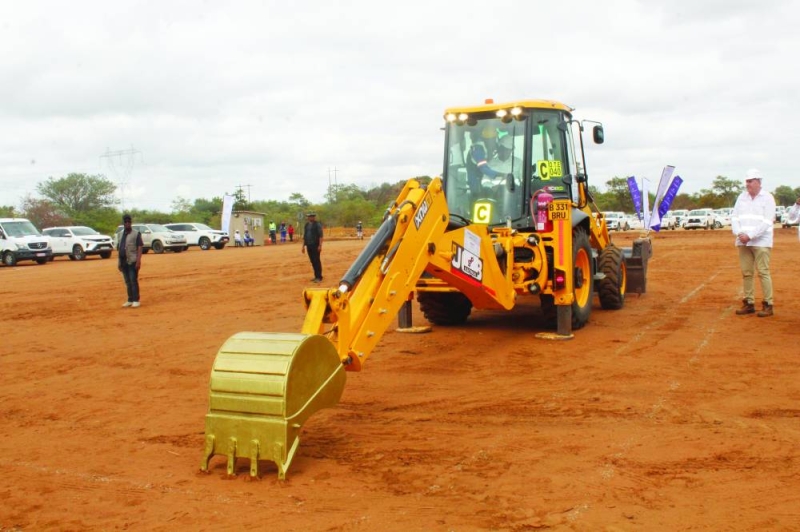Mmadinare Solar PV project provides potential for power export
Lesedi Mkhutshwa | Tuesday March 26, 2024 06:00


He was addressing dignitaries at the ground breaking ceremony of the Mmadinare solar cluster project which is the first utility scale grid connected solar photovoltaic project in the country.
Masisi said the project offers the possibility of power export to the region, allowing them to achieve Botswana’s long-term objective of becoming a net exporter of electricity and self-sufficient. He added that the project will add 50MW of renewable energy to their energy mix when it is put into service by the end of January 2025, adding the total capacity of the project is 100MW to be constructed in two phases.
'The 50MW, the first phase of which we are commemorating today. Midway through 2025, the second phase also 50MW will be delivered,' he added. The President also mentioned the 'Sustainable Environment' factor as one of the National Vision's four pillars. According to the country’s Vision 2036, the goal is that by 2036, their economy will have changed and the lives of 'our people will have been improved through the sustainable and optimal use of our natural resources', he clarified.
He added that resources must be worked on with human knowledge and skills in order to be transformed into valuable goods of various kinds. 'Botswana will be a net energy exporter, with a variety of safe and clean energy sources, and energy secure.' Masisi stated that in order for this to come about, their energy sector must be transformed by utilising renewable resources to supplement the use of non-renewable resources, which they have largely relied on up until recently. He explained that in order to fulfill the aspiration for sustainable development, government created an Integrated Resource Plan (IRP) in 2020.
This plan establishes the national framework for energy planning and synchronises the development of technology and timelines for the creation of new generation capacity. Masisi stated that although Botswana experiences frequent total cloud cover, the country is blessed with many hours of sunshine annually and is amongst the world's most irradiated nations.
The President stated that their goal is to use technology to take advantage of this resource and turn it into a useful product that will benefit Batswana. He expressed gratitude to Scatec Solar ASA of Norway for investing in the first grid-scale photovoltaic project in Botswana. Furthermore, he stated that this foreign direct investment signifies the start of the country’s energy shift away from a generation that is almost entirely based on fossil fuels to one that is based on a sustainable energy mix that includes, among other things, wind, solar, coal, and gas.
He said efforts are being made by the government to switch from coal-fired to renewable energy for the production of electricity. Masisi discussed the Mmadinare Solar Cluster, which by mid-2025 will generate 100MW of solar PV power. In the first quarter of 2026, an extra 100MW of solar PV generation will be produced by the second utility-scale grid-connected solar PV plant, which is planned to be built in Jwaneng, he added. Masisi also discussed the acquisition of a 100MW solar PV plant to be built in Letlhakane and a 200MW dispatchable solar PV plant to be built in Maun. Additionally, he stated that Botswana has made a contribution to the energy transition and that 10 small-scale grid-tied solar PV plants totaling 32 MW have been awarded to companies that are 100% owned by citizens.
